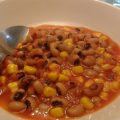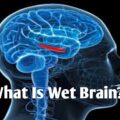According to the World Health Organization, brain Health is an emerging and growing concept that encompasses neural development, plasticity, functioning, and recovery across the life course. Good brain health is a state in which every individual can realize their own abilities and optimize their cognitive, emotional, psychological and behavioural functioning to cope with life situations. Numerous interconnected social and biological determinants (incl. genetics) play a role in brain development and brain health from pre-conception through the end of life. These determinants influence the way our brains develop, adapt and respond to stress and adversity, giving way to strategies for both promotion and prevention across the life course.
What you eat greatly influences how well (or poorly) your brain functions. Eating a healthy diet that is nutrient-dense when your body recovers from a brain injury is of great value to your overall well-being and recovery from concussion symptoms. The brain needs nutrients and calories in order to function and it is vital that a person who has sustained a brain injury gets enough calories for the brain to function efficiently. Additionally, deficiencies in certain chemical and nutrients can lead to disruptions in the brain’s function and a person’s ability to think with clarity. Nutrition comes in many forms, including enzymes, vitamins, minerals, amino acids, lipids and carbohydrates.
Neurotransmitters, or brain chemicals, that are responsible for regulating your behavior are controlled by what you put in your body. Neurotransmitters such as serotonin, dopamine and norepinephrine are responsible for your moods. For example, if you eat foods that increase your body’s serotonin levels, you will become less tense. Foods that encourage the production of norepinephrine or dopamine enable you to think more clearly and be more alert.
A common unfortunate side effect of a mild traumatic brain injury, or concussion, is depression. This can keep a person from living a normal functioning life and can interfere with one’s ability to enjoy life overall. By making healthy food choices that combat depression and other issues after a concussion, you may be able to help keep these symptoms at bay. Here are some brain healing foods you can eat;
Fatty Fish
Did you know the brain is the fattiest organ in the body, consisting of a minimum of 60% fat? In addition, fats from the bloodstream can serve as an energy source for the brain. Healthy fats, such as monosaturated and polyunsaturated fats, also promote good blood circulation because they are anti-inflammatory in nature. DHA omega-3 and Omega-6 fatty acids are known to fight memory loss, depression, improve sleep quality, vision, and improve the number of molecules that increase neuronal growth and survival. Omega-6s are also often used to increase good cholestrol or high-density lipoprotien, which serves as a building block for the steroid hormones that affect metabolism, inflammation, immune function, and salt/water balance. Salmon is good for your body and brain because of the benefits that come from DHA Omega3. DHA is an essential fatty acid that helps support the tissue of the brain. DHA also supports overall brain performance and makes up about 97% of the omega 3 fatty acids in the brain.
Almonds, Cashews, Pecans, Macadamia Nuts,and Walnuts
Nuts are a great source of a variety of vitamins and minerals. These help your body to ensure that fluids are in correct balance. They help the body with proper blood and bone formation in addition to healthy muscle tone and nerve formation. Minerals help to promote energy, healing and growth as coenzymes. Every mineral in the body works uniquely yet together with coenzymes. If one is out of balance, the rest can be affected. Minerals such as calcium, magnesium, iron, potassium, manganese and zinc are all important for proper body and brain function. Not all nuts provide the same benefits. For example, walnuts are good for the brain because they have higher levels of DHA, which is important for brain health. Harvard recently found that those who eat nuts on a daily basis have a 20% lower death rate.
Antioxidant rich Fruits and Vegetable
Antioxidants protect enzymes, fats, and vitamins in the body. Studies have shown that antioxidants can counteract unstable molecules, such as free radicals. Antioxidants also counteract the oxidative stress on the brain and may reverse some of the symptoms of aging. In the body, there are immune cells in the brain that serve as the central nervous system’s primary defense. However, over activation of these cells can lead to chronic pain, prevent healing, and lead to persistent inflammation. Luckily, there are compounds found in food that can reduce this over-activation. Antioxidants work as powerful anti-inflammatories. Examples: Antioxidants can be found abundantly in fruits and vegetables. Dark colored berries like blueberries are rich in antioxidants. Tumeric is a great spice to fight inflammation because it contains curcumin. Avocados are made up of healthy fats these generally support healthy blood flow, which in turn support healthy brain function. We wrote a post about all of the amazing nutritional powers an avocado has on brain and body health. In addition, Blueberries, Raspberries, Blackberries, Cranberries, and Strawberries will not only bring the benefits of antioxidants, but also help to reduce inflammation and improve signaling in the brain, according to a recent study by the Human Nutrition Research Center on Aging.
Carbohydrates
Growing and sustaining our large human brains takes a lot of energy; as a result, our brains eat up a large share of the energy we get from food. Carbohydrates, with their high nutrient and energy density, in part allowed us to evolve our amazing brains and provide us with energy. Carbs are found in many food sources, including beans, meat, fruits, legumes and vegetables. Complex carbohydrates are better for you than simple carbohydrates, which are found in processed foods and beverages like candy, sodas and other sweet treats. Opt for complex carbohydrates, such as whole grain breads and pastas and whole fruits (not dried or canned) after a mild traumatic brain injury. According to this study published in 2008, complex carbohydrates can reduce the risk for disease and improve cognition.
Water
The body is comprised of two-thirds water. It is used in every function in the human body and works to transport not only nutrients but also waste from every cell. Water helps to maintain body temperature and is vital for digestive actions, proper absorption of nutrients and circulatory functions. Ensure that you get at least eight to ten 8-ounce glasses of water every day.





